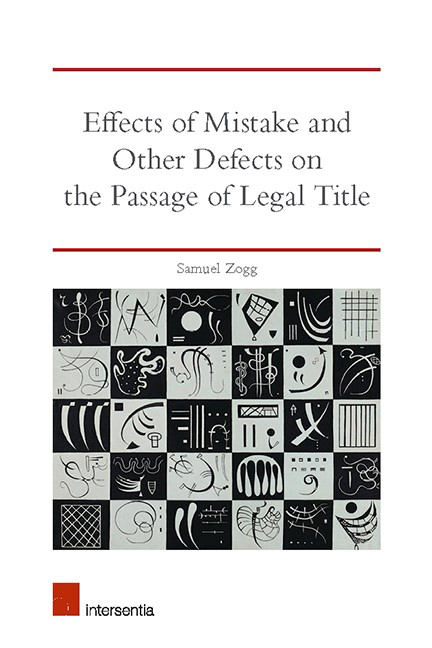Book contents
- Frontmatter
- Dedication
- Preface
- Acknowledgements
- Contents
- List of Cases
- List of Abbreviations
- Chapter 1 An Introduction to Defective Transfers of Property
- Chapter 2 Transfer of Legal Ownership in Tangible Movable Property
- Chapter 3 Defects which Prevent the Passage of Legal Ownership
- Chapter 4 Fundamental Mistake in Particular
- Chapter 5 Conclusion
- Bibliography
- Index
- About the Author
Chapter 3 - Defects which Prevent the Passage of Legal Ownership
Published online by Cambridge University Press: 09 November 2019
- Frontmatter
- Dedication
- Preface
- Acknowledgements
- Contents
- List of Cases
- List of Abbreviations
- Chapter 1 An Introduction to Defective Transfers of Property
- Chapter 2 Transfer of Legal Ownership in Tangible Movable Property
- Chapter 3 Defects which Prevent the Passage of Legal Ownership
- Chapter 4 Fundamental Mistake in Particular
- Chapter 5 Conclusion
- Bibliography
- Index
- About the Author
Summary
In the previous chapter, we have examined the mechanics of how legal title may be transferred from one person to another. There are basically three different modes of transfer, namely delivery, sale and deed. What is common to all of them – “super-abstract” transfers by registration apart – is that, on the one hand, a sufficient intention of the transferor to transfer legal ownership is necessary and that, on the other hand, the transferee's acceptance of ownership is at some point required. This real agreement is the minimum requirement to convey legal title in tangible chattels, though conveyance may have further requirements, such as delivery or the execution of a deed. The mentioned modes of transfer have equally in common that conveyance is distinct and independent from an underlying contract or obligation (principle of separation and abstraction).
In this and in the next chapter, we shall now analyse certain types of defects – particularly mistakes – with regard to the question whether they are serious enough to prevent the passage of legal ownership. As a result of the mentioned similarities between transfers by sale, transfers by delivery and transfers by deed, this inquiry can broadly be made without reference to any particular mode of transfer. The principles elaborated in the following chapters accordingly apply to all of them.
Real defects, i.e. defects which prevent the passage of property, may basically operate in two different ways. They may either negative a transferor's intention to transfer property or they may negative a transferee's intention to accept the receipt of ownership. Since the latter, however, only very rarely occurs in practice, our focus shall lie on cases where defects infected the transferor 's intention to pass property. Real defects may already occur in the formation stage, affecting the parties’ initial real agreement (oft en expressed unoactu with the conclusion of a corresponding obligatory contract), or – also or only – in the execution stage, affecting a party's real intention to carry out a conveyancing act, such as delivery.
It will be recalled that the range of real defects, which prevent the passage of property, is narrower than the range of obligatory defects, which affect the validity of a contract.
- Type
- Chapter
- Information
- Publisher: IntersentiaPrint publication year: 2019



